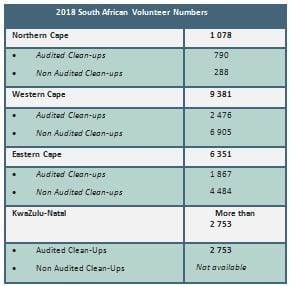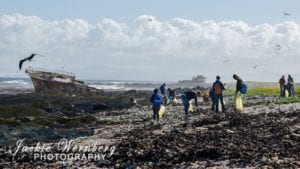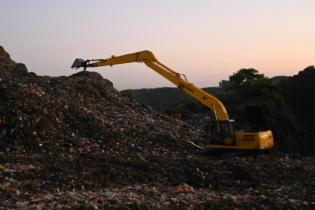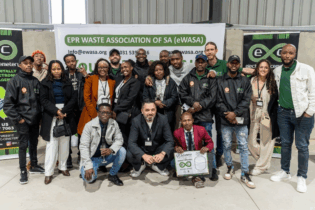The results of the 2018 International Coastal Clean-up have just been released revealing some of the country’s largest pollutants along the coast.
Saturday, 15 September 2018 saw 19 563 volunteers’ collect 241 425 items nationally in audited clean-ups that took place along the country’s 2 500km long coastline.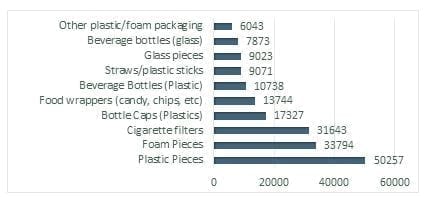
Plastic pinpointed as biggest polluter
The plastic pieces were followed closely by foam pieces, cigarette butts, bottle caps, food wrappers (which include chip packets and sweet wrappers), glass pieces, beverage bottles, straws and lolly sticks. Asthma pumps were the most prolific medical items found in the three Cape provinces, whilst in Kwazulu-Natal especially in urban clean-ups, it was disposable syringes. Kieser notes that the main cause of litter on South African beaches and in the marine environment is irresponsible human behaviour.
“The improper disposal of waste and a lack of waste management infrastructure are the two biggest issues that need to be addressed and corrected,” he highlights.Kieser adds that the increase in the amount of disposable diapers found illegally dumped, especially around informal settlements, was another area of concern, whilst nationally, approximately 2. 5 km of rope or string and 2.8 km of fishing line were also removed from the beaches.
Fast facts from the 2018 International Coastal Clean-up
- 4 300 kms were covered to distribute material and arrange logistics over a four-week period.
- 50 000 refuse bags were distributed during September 2018
- 10 800 pairs of gloves provided
- 80 plastic buckets and 85 garden rakes provided by Addis
“It is encouraging to see how each year’s International Coastal Clean-up continues to grow in the amount of volunteers participating, but also the amount of beach clean-ups which are being initiated and driven by communities and volunteers.
